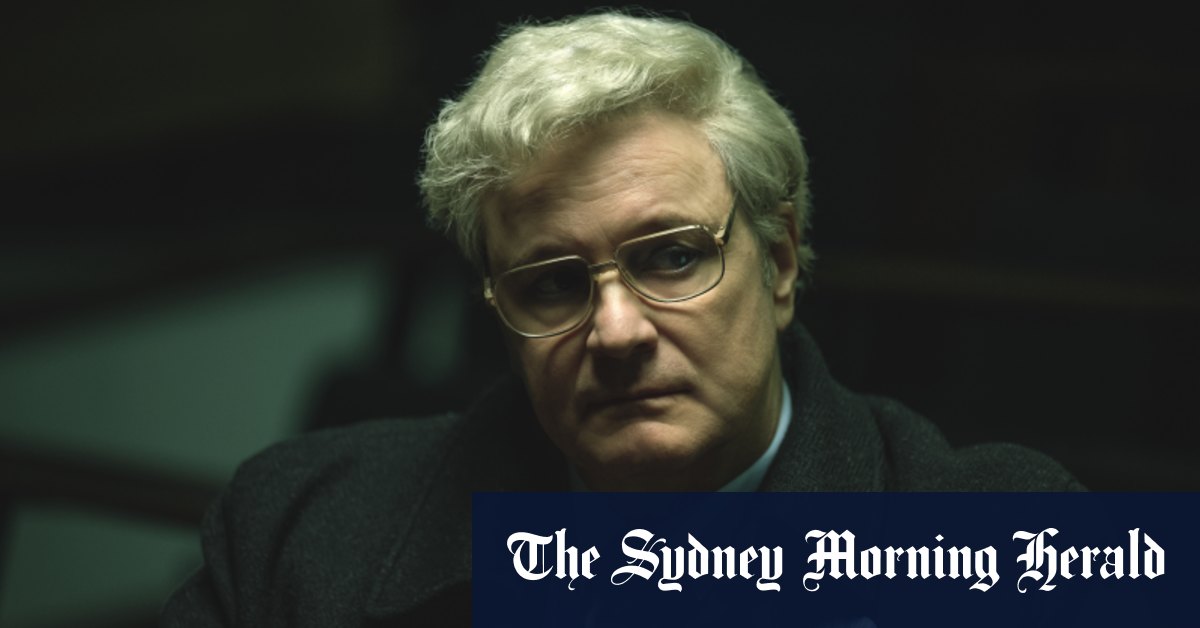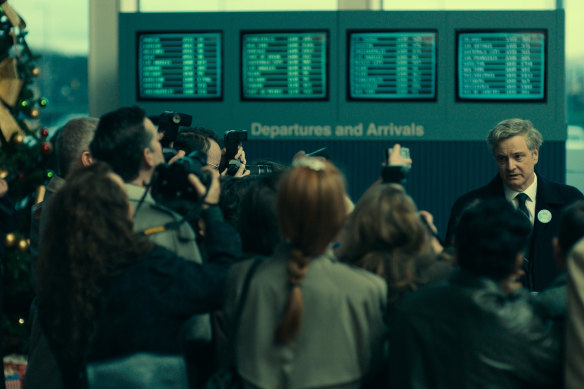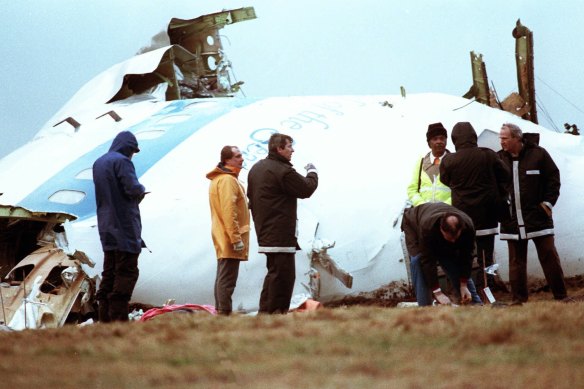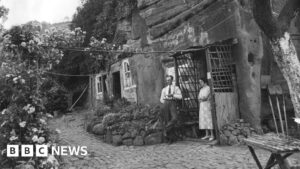
Only one man – the intelligence operative Abdelbaset al-Megrahi from Tripoli – has ever been convicted in connection with what amounts to the biggest homicide in modern British history. He was released on compassionate grounds in 2009 after he was diagnosed with cancer and died three years later in Libya.
But for years Swire, unconvinced by the evidence he heard 22 years ago at Camp Zeist, the Scottish court set up in the Netherlands for the trial, has argued that the Lockerbie bomber is innocent. He believes Iran – and not Libya – downed the flight. Al-Megrahi’s family believe he suffered a miscarriage of justice. Appeals against his conviction have been rejected.

Colin Firth in the TV miniseries Lockerbie: A Search for Truth.Credit: NBC Universal / Carnival
The series has once again pitted Swire against the families of other victims – who accept the official story that Libyan spies planted a bomb on the plane.
Before beginning filming, Firth spent time with the real-life Swire, now 88, and his wife Jane, played by Catherine McCormack (Slow Horses, Brave Heart and Sherlock), at their home. He needed to be confident in the project because he sensed it could have a similar impact on the public as Mr Bates vs The Post Office, which transformed understanding of the Post Office scandal.
“That wasn’t really a research meeting for me,” Firth says. “That was just getting to know each other, to see trust hopefully build a little bit. You can’t meet them without feeling a warmth and respect, and then realising what a huge thing to live up to this was going to be.”
Firth says he was struck by Swire’s “alertness and intellectual agility”, adding that he had to “catch up and keep up”.

The crashed Pan Am flight 103, a Boeing 747 airliner in a field near Lockerbie, Scotland in 1988. Credit: AP
“I suppose, looking back on it, that must have gone into the hard drive. This vigilance, this readiness to respond to new ideas, that was very apparent in that first meeting,” he says.
“I don’t want to brief everyone on private conversations, but Jim got straight to the point. He started to ask me questions, and there wasn’t a lot of small talk before we went into it. It wasn’t all about this, you know, he also made me laugh. We did talk about other things.”
Loading
One of the difficulties of the 12-week shoot was scenes being shot out of chronological order. The story is set over three decades, and so they had to adapt quickly. McCormack, 52, says she created a “map” that helped her navigate the jumping between timelines.
She makes a remarkable impact in an early scene. In a meeting with Cecil Parkinson, the UK Transport Secretary, her character counts to 15 to demonstrate how long her daughter Flora may have been conscious after the explosion.
She said she found in her research that Jane would seek out information on the disintegration of aircraft and what the last moments of someone’s life could have been like.
“I sort of kept that with me as I went into it,” McCormack says. “I didn’t meet Jane before, but from information out there I found there was such a dignity, grace and strength to her and of course, vulnerability.”
Loading
Scottish writer David Harrower, known for the play Blackbird, almost removed the scene after reading it on the page as he felt it could be seen as “hokey” but it is likely going to become a standout inclusion. Lead director Otto Bathurst, who won a BAFTA for BBC period crime drama Peaky Blinders, says the expressions on the other actors in the scene said it all.
“What was going on had us all, jaws slackened; there was no acting required,” Firth says.
Lockerbie: A Search for Truth is on Binge from January 2.
Find out the next TV, streaming series and movies to add to your must-sees. Get The Watchlist delivered every Thursday.



